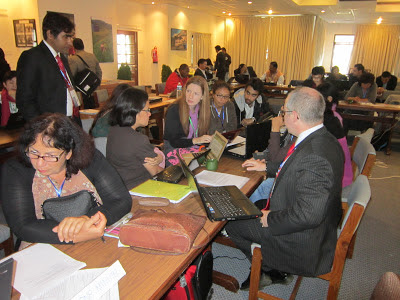Dear Youth and Children Major Group,
As you may know, last Friday, the Second Committee of the GA adopted the resolution "Implementation of Agenda 21, the Programme for the Further Implementation of Agenda 21 and the outcomes of the World Summit on Sustainable Development and of the United Nations Conference on Sustainable Development (A//C.2/67/L.45)" in which paragraph 3 "requests the Secretary-General to submit a focused and concise report on lessons learned from the Commission, compiling relevant existing information in consultation with Member States and benefiting from the inputs of major groups and other stakeholders, to inform the negotiations".
This means that they want each Major Group to provide some input before Sunday, 30th December 2012 on the following:
- Promoting balanced integration of economic, social and environmental dimensions;
- Allowing the review of progress in implementing sustainable development commitments;
- Providing policy guidance at all levels;
- Promoting implementation of sustainable development at all levels;
- Enhancing coherence, coordination and cooperation at all levels and within UN system;
- Advancing sustainable development issues in other international, regional and national for a;
- Allowing the science-policy interface;
- Reaching action oriented agreement in an effective way;
- Promoting full and effective participation of all countries;
- Enhancing engagement of the UN system, Major Groups and other relevant stakeholders;
- Effective use of meetings, including preparatory process;
- Mobilizing adequate secretariat support.
This Report will impact the modality and working of the high level political forum which will be replacing the CSD cycle....incase you don't know what the CSD cycle is....you can find out more on uncsdchildrenyouth.org or http://sustainabledevelopment.un.org/












